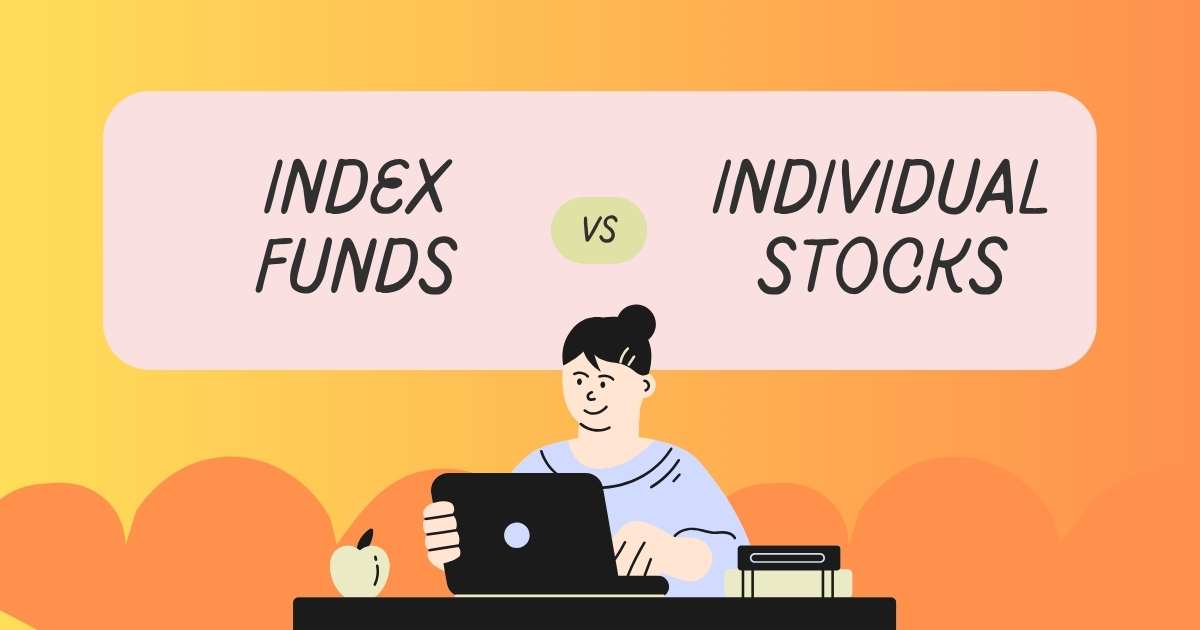If you’re just starting your investment journey in 2025, you might be asking: “Should I invest in index funds or individual stocks?” It’s one of the most important decisions beginner investors face.
In this guide, we’ll break down the pros and cons of index funds vs individual stocks, how they perform in 2025’s market environment, and which one is the smarter pick for beginners.
💼 What Are Index Funds?
An index fund is a type of mutual fund or ETF that tracks a specific market index—like the S&P 500, NASDAQ, or Dow Jones. Instead of picking individual companies, you invest in a broad basket of stocks.
✅ Benefits of Index Funds:
- Diversification: One fund gives exposure to hundreds of companies
- Low Fees: Most charge less than 0.10% annually
- Passive Management: No need to pick winners or time the market
- Proven Returns: Historically average 7–10% annually over the long term
🚫 Downsides:
- No chance of “hitting it big” like with a single stock
- Limited flexibility—follows the market index
📈 What Are Individual Stocks?
Individual stocks are shares of a single company, like Apple (AAPL), Tesla (TSLA), or Amazon (AMZN). You pick and buy them based on your own research or recommendations.
✅ Benefits of Stocks:
- Higher Potential Returns: Picking the right stock can yield massive profits
- Control: Choose companies, sectors, and entry/exit points
- Dividends: Earn income from dividend-paying stocks
🚫 Downsides:
- Higher Risk: One bad pick can wipe out gains
- Requires Research: You must study financials, news, and trends
- Emotionally Taxing: Stock market volatility can lead to poor decisions
🔍 Index Funds vs Individual Stocks in 2025: A Side-by-Side Comparison
| Feature | Index Funds | Individual Stocks |
|---|---|---|
| Risk Level | Low to Moderate | Moderate to High |
| Time Commitment | Minimal | High |
| Diversification | Excellent | Limited unless many |
| Fees | Low (0.03–0.10%) | Varies (commissions/spreads) |
| Management Style | Passive | Active |
| Returns Potential | Moderate | High (with higher risk) |
| Best For | Beginners, long-term | Experienced investors |
🧠 Why Most Beginners Should Start With Index Funds in 2025
The 2025 market environment is volatile but promising. Inflation is moderating, tech is booming again, and more Americans are investing thanks to fractional shares and easy-to-use apps.
However, beginners still face challenges:
- Limited knowledge of financial analysis
- Emotional decision-making
- Lack of diversification with small budgets
That’s why index funds make sense for most new investors in 2025. They provide instant diversification, low costs, and solid long-term growth potential.
💡 How to Start Investing in Index Funds
1. Choose a Brokerage:
Great beginner-friendly options in the U.S. include:
2. Pick a Popular Index Fund:
- Vanguard S&P 500 ETF (VOO)
- Fidelity ZERO Total Market Index Fund (FZROX)
- Schwab U.S. Broad Market ETF (SCHB)
3. Set Up Automatic Investments:
Even $100/month can grow significantly over time with compounding.
💡 When Should You Consider Individual Stocks?
Once you’ve mastered the basics and built a solid base of index fund investments, consider adding individual stocks if:
- You enjoy researching companies
- You want to invest in industries you know (tech, healthcare, energy)
- You’re willing to take on more risk for higher reward
Start small. Use tools like:
Set stop-loss limits and diversify across multiple companies.
📊 A Smart Strategy: Combine Both
Many 2025 investors follow the “Core and Satellite” strategy:
- Core Portfolio (70–90%): Index funds for stability
- Satellite Holdings (10–30%): Individual stocks for growth
This allows for long-term security while giving room for upside potential.
🔁 Related Articles
- Best Investment Apps for Beginners in 2025
- How to Start Investing With $100 in 2025
- ETFs vs Mutual Funds: What’s Best for Beginners?
🏁 Final Verdict: Index Funds vs Stocks for Beginners in 2025
If you’re just starting out, index funds are the safest, smartest way to grow wealth in 2025. They’re low-risk, easy to manage, and proven over time.
But as you gain confidence and knowledge, exploring individual stocks can add growth and excitement to your portfolio.
Start small. Stay consistent. And always invest with a long-term mindset.

